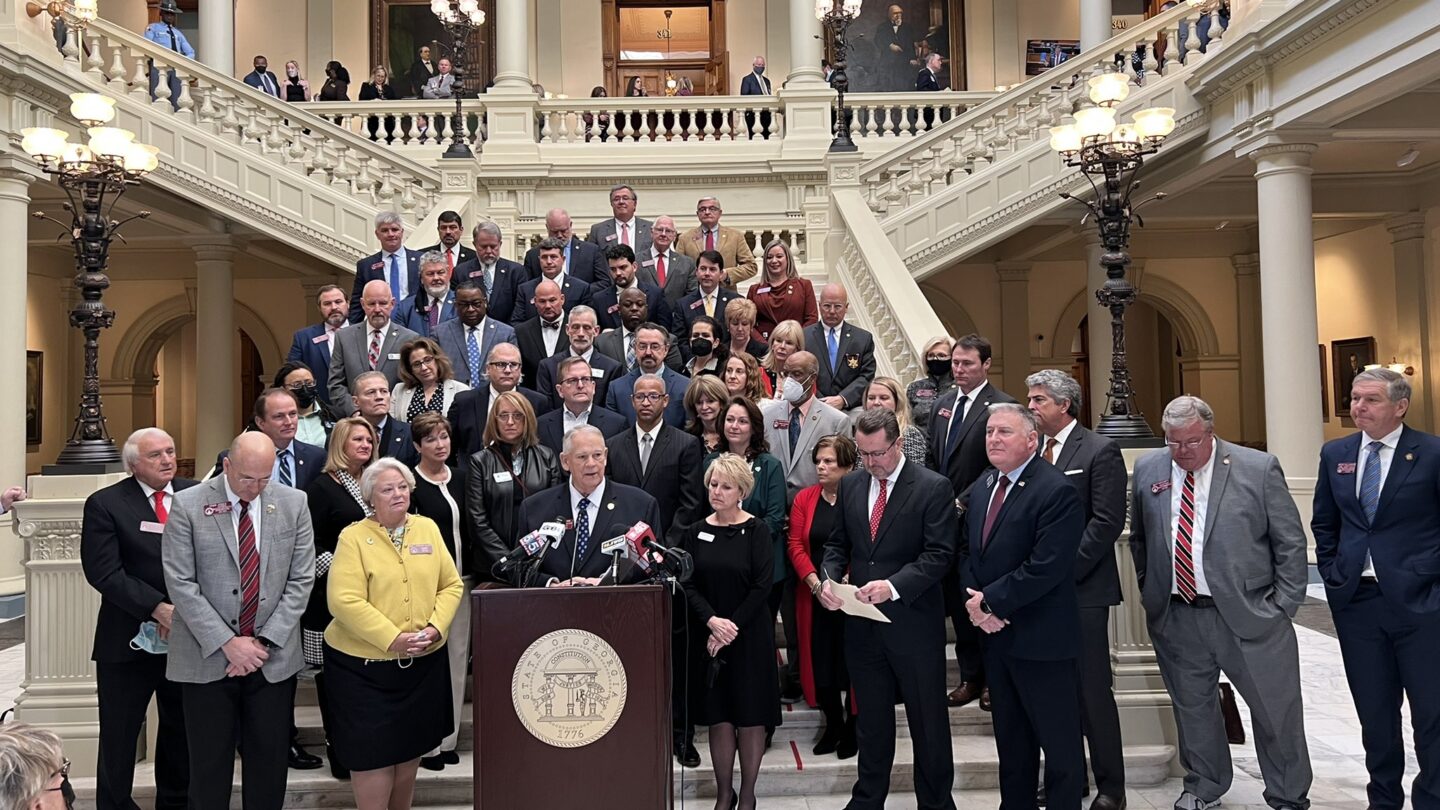Updated at 2:02 p.m.
A bipartisan group of state lawmakers has unveiled a massive bill to overhaul mental healthcare in Georgia.
Led by Republican House Speaker David Ralston, the “Mental Health Parity Act” touches on everything from how insurers cover mental health treatment to training more providers and creating mental health response teams around the state.
“There is no issue this session more important to me than this issue,” Ralston said at a packed press conference in the State Capitol. “I’m tired of telling desperate, hurting families that we have no treatment options available in Georgia.”
Georgia is ranked among the worst states when it comes to mental health and access to care. The state has long faced shortages of staff, beds and funding. The need has only grown during the pandemic.
At a budget hearing last week, Judy Fitzgerald, commissioner of the Department of Behavioral Health, said the state saw a 24% increase in calls and texts to Georgia’s crisis line last year.
“It felt like you were just climbing a mountain and not getting anywhere,” says Emily Acker, president of Hillside, which provides mental health services for children. “We work with a lot of families day in and day out, who are very tired and frustrated and worried and scared for the lives of their children, and have difficulty navigating the system to get the help their child needs.”
Acker says more people have been showing up in the emergency room for mental health crises. That’s because they often can’t access or afford services when they first need them.
A key issue House Bill 1013 will address is something called parity. Insurance companies in Georgia often limit the mental health services they’ll pay for, in ways they don’t with other kinds of healthcare. The bill would require insurers meet parity standards that have already been set by federal law, but haven’t been typically enforced in Georgia. Parity would also apply to substance abuse treatment under the new legislation.
“Our brain is the most important organ in our body,” says Kathy Colbenson, president of CHRIS 180, a provider for children and adolescents. “And we treat diseases of the brain as if they’re a matter of choice. And they’re not.”
Georgia providers are also struggling to hire staff like therapists and psychiatrists. The work is difficult and burnout has been a problem, especially during the pandemic. Fitzgerald, with the Department of Behavioral Health, said about 180 beds for in-patient mental health treatment are offline right now because there’s not enough people to staff them.
This bill could increase reimbursements for providers and create a cancelable loan program for training in mental health or substance abuse treatment, including psychiatry, psychology, professional counselors, social workers, marriage and family therapists.
Rural parts of the state face their own challenges. In some places, finding nearby crisis care is almost impossible. Fitzgerald said rural Georgia experienced an 8% increase in suicides between 2019 and 2020, and she said preliminary data suggests the numbers are getting worse.
One program the bill would develop is a network of co-response teams with police officers and mental health professionals around the state. It would create new diversion programs to help people dealing with mental health issues from ending up in the criminal justice system. And if passed, a police officer would not need to arrest someone to obtain an emergency mental health evaluation.
Gov. Brian Kemp’s budget already includes some funding for this bill. Ralston says he wants to make sure the legislation is fully funded. The bill’s authors haven’t released a topline cost yet.
Colbenson and Acker say if the legislation passes this year, there will still be more to do. But for the first time, Acker sees signs of progress.
“The attention this year feels like a breath of fresh air, and we’re starting to be hopeful again,” she says.








